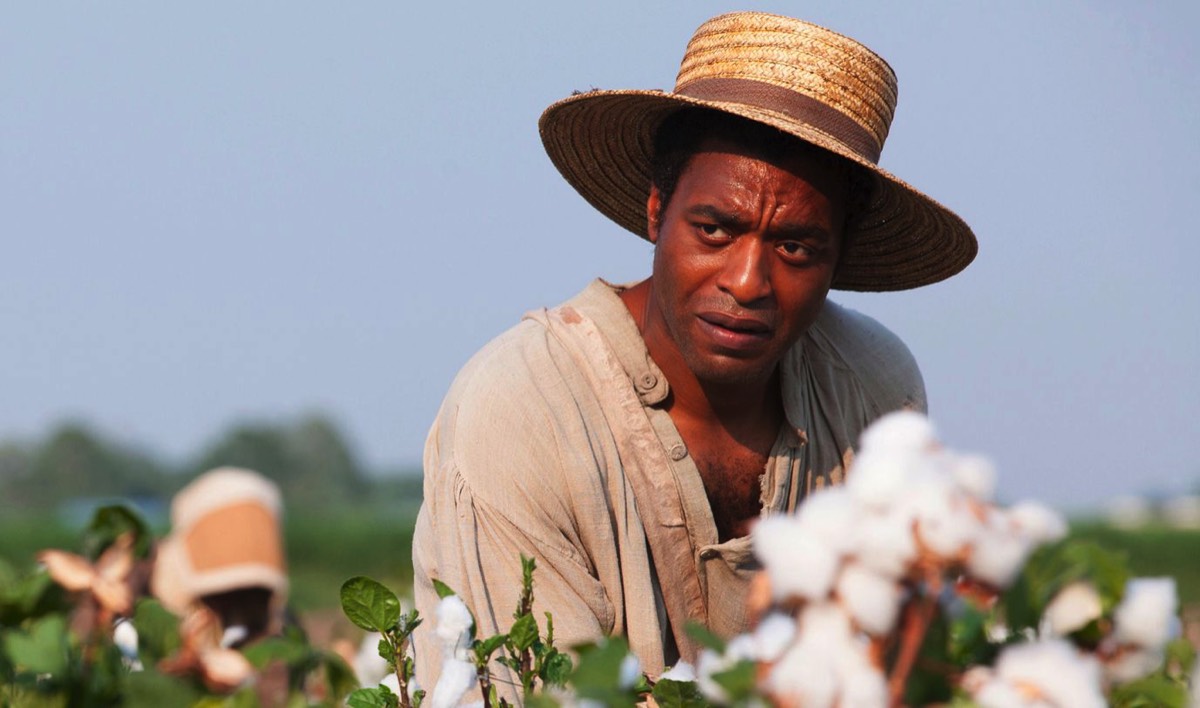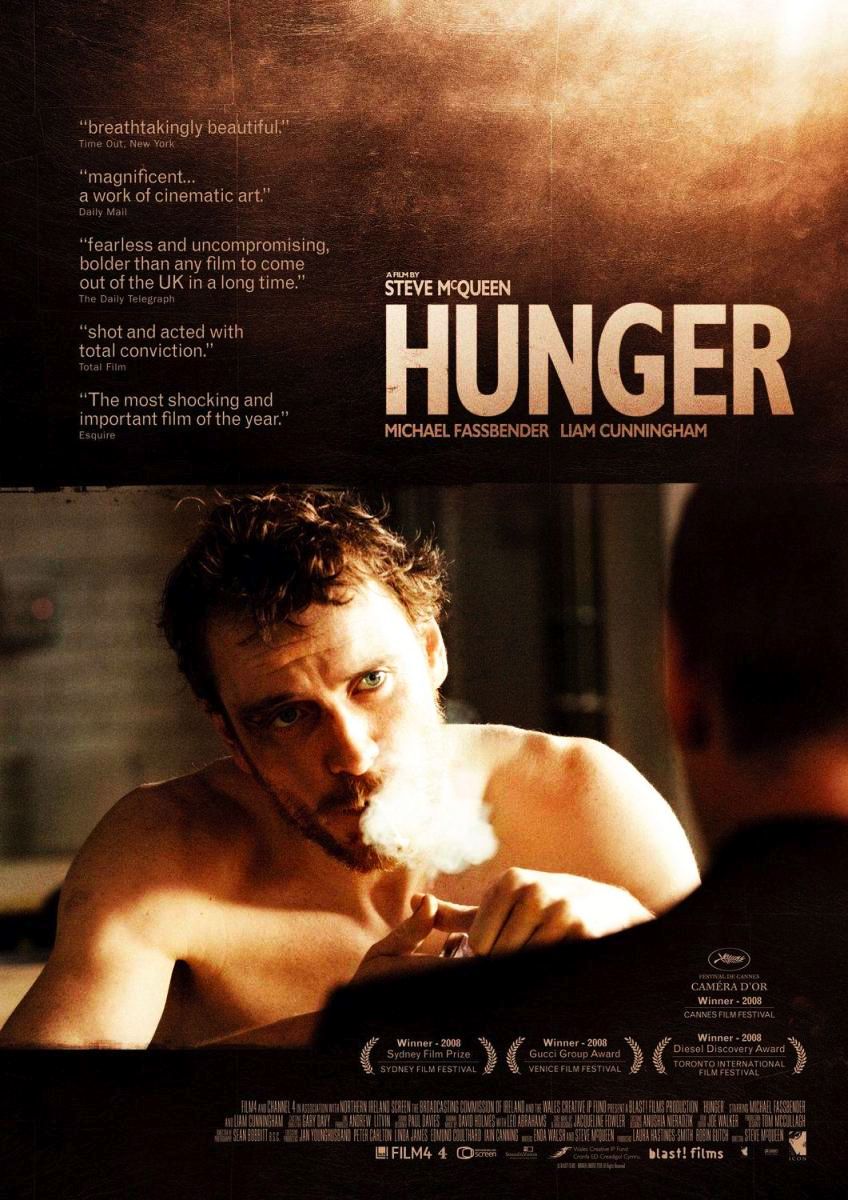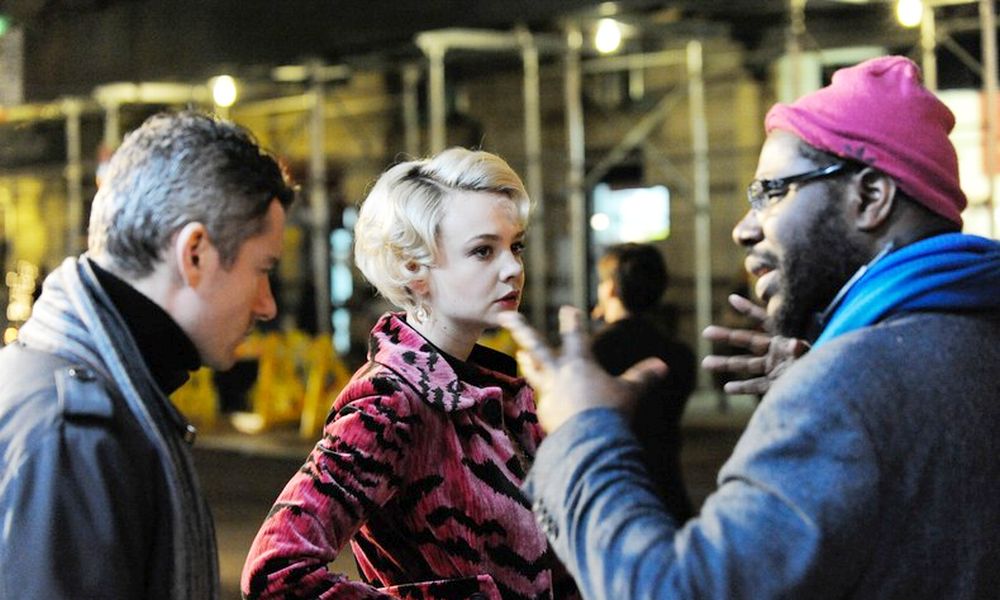"All of McQueen’s feature films document brutality with unflinching power, whether in a prison in Northern Ireland, the figurative jail of sexual addiction or the serial tortures of slavery. In an entertainment culture that has only grown increasingly hospitable to violent diversions, McQueen’s preoccupation with the reality of violence in our lives would be meaningless had he not found forms of depicting it that were meaningfully new." - Wyatt Mason (The New York Times, 2015)
Steve McQueen
Director / Screenwriter / Editor / Producer / Cinematographer
(1969- ) Born October 9, London, England
21st Century's Top 100 Directors
(1969- ) Born October 9, London, England
21st Century's Top 100 Directors
Key Production Countries: UK, USA
Key Genres: Short Film, Drama, Documentary, Prison Film, Psychological Drama, Political Drama
Key Collaborators: Sean Bobbitt (Cinematographer), Anita Overland (Producer), Michael Elliott (Producer), Shabier Kirchner (Cinematographer), Chris Dickens (Editor), Joe Walker (Editor), Helen Scott (Production Designer), Michael Fassbender (Leading Actor), Alastair Siddons (Screenwriter), Courttia Newland (Screenwriter), Arnon Milchan (Producer), Emile Sherman (Producer)
Key Genres: Short Film, Drama, Documentary, Prison Film, Psychological Drama, Political Drama
Key Collaborators: Sean Bobbitt (Cinematographer), Anita Overland (Producer), Michael Elliott (Producer), Shabier Kirchner (Cinematographer), Chris Dickens (Editor), Joe Walker (Editor), Helen Scott (Production Designer), Michael Fassbender (Leading Actor), Alastair Siddons (Screenwriter), Courttia Newland (Screenwriter), Arnon Milchan (Producer), Emile Sherman (Producer)
"He has never been interested in pleasing mainstream tastes, but no matter how uncompromising his work, it keeps becoming more and more popular. After winning the 1999 Turner prize with a video installation filmed from an old oil drum rolling through Manhattan, he was awarded an OBE, followed in 2011 by a CBE. His first feature film, Hunger, released in 2008, was a remorselessly gruelling portrayal of Bobby Sands starving himself to death in the Maze prison, and not an easy sell, but the critics went wild and McQueen won a Bafta. Shame, his second movie, could not have been a less sexy study of sex addiction, but took more than £10m at the box office." - Decca Aitkenhead (The Guardian, 2014)
"McQueen was born to a Grenadan father and a Trinidadian mother, both of whom had immigrated to England. He studied art in London at the Chelsea College of Art and Design (1989–90) and at Goldsmiths College (1990–93; now Goldsmiths, University of London), where he developed an enthusiasm for film. That interest took him to Tisch School of the Arts, New York University, in New York City, but he was unhappy there, and he left after three months. He nonetheless continued to make art, including photographs, sculptures, short films, and installations." - Kathleen Kuiper (Encyclopaedia Britannica)

12 Years a Slave (2013)
"Watching a McQueen film can be harrowing. He doesn't set about staging facile triumphs of the human spirit, as the movie-poster cliché goes, so much as the human spirit's attrition and annihilation. We witness long, static takes of bodies in various states of festering abjection; we see Fassbender, McQueen's muse, as an emaciated corpse in Hunger, a dead-eyed sex addict in 2011's Shame and, in 12 Years a Slave, a drunken, whip-wielding rapist." - Jonah Weiner (Rolling Stone, 2014)
"McQueen is an artist – one of the most important artists to come out of Britain in the last 25 years, in fact – and film critics’ considerations of 12 Years a Slave have felt, to this art critic at least, woefully incomplete. Some writers have paid a soft tribute to McQueen’s art, singling out the movie’s uncommonly long takes and unconventional camera angles as “arty” elements in an otherwise traditional film. Worse has been the suggestion that McQueen’s art was merely a preamble or a training ground, as if movies were more important than other visual art by definition. On the contrary, 12 Years a Slave is a continuation of, rather than a break from, McQueen’s artistic practice. In its dispassionate and detached style, its political and historical concerns, and its depictions of bodies in extreme states, the film is every bit a work of art, and an understanding of McQueen’s earlier work can help to reveal the scale of its achievement." - Jason Farago (BBC Culture, 2014)
"When London-born artist/film-maker Steve McQueen was in his early twenties, he made a short film called Bear (1993) in which two naked men (one of them played by McQueen himself) confronted each other as if about to fight… Twenty years on, with McQueen established as one of the most prominent British film directors of his generation, it is easy to find traces of Bear in his feature films. He still seems preoccupied with violence, sexuality and with portraying the captive male body." - Geoffrey Macnab (The Independent, 2013)
"Steve McQueen is an artist known for his uncompromising engagement in tackling difficult social and political issues. His vivid filmmaking style explores the problems of racism, violence, addiction and inequality, constantly moving and provoking discussion, which situates him as one of the most important contemporary film creators." - Marek Żydowicz (Camerimage Festival, 2024)
"A radical video artist and filmmaker, Steve McQueen is one of Britain’s most influential contemporary artists. Hailed in a 2010 New York Times headline as an “Intense Seeker of Powerful Elegance,” McQueen has become known for his formalism and his willingness to engage with controversial content in powerfully human ways." - Scott Foundas (Walker Art Center, 2013)
"I don’t see myself as anything. I just do stuff. It’s all the same to me – art or film. I don’t see any difference, or any divide." - Steve McQueen, 2008
Selected Filmography
{{row.titlelong}}
Steve McQueen / Favourite Films
The Battle of Algiers (1966) Gillo Pontecorvo, Beau travail (1999) Claire Denis, Contempt (1963) Jean-Luc Godard, Couch (1964) Andy Warhol, Do the Right Thing (1989) Spike Lee, Once Upon a Time in America (1984) Sergio Leone, The Rules of the Game (1939) Jean Renoir, Singin' in the Rain (1952) Stanley Donen & Gene Kelly, Tokyo Story (1953) Yasujiro Ozu, Zero for Conduct (1933) Jean Vigo.
Source: Sight & Sound (2022)
The Battle of Algiers (1966) Gillo Pontecorvo, Beau travail (1999) Claire Denis, Contempt (1963) Jean-Luc Godard, Couch (1964) Andy Warhol, Do the Right Thing (1989) Spike Lee, Once Upon a Time in America (1984) Sergio Leone, The Rules of the Game (1939) Jean Renoir, Singin' in the Rain (1952) Stanley Donen & Gene Kelly, Tokyo Story (1953) Yasujiro Ozu, Zero for Conduct (1933) Jean Vigo.
Source: Sight & Sound (2022)
Steve McQueen / Fan Club
Claire Monk, Tara Brown, Tim Robey, Leila Latif, Clio Barnard, Sukhdev Sandhu, Ella Kemp, Akin Omotoso, Daniel Kothenschulte, David Fear, Sandra Hebron, Ann Hornaday.
Claire Monk, Tara Brown, Tim Robey, Leila Latif, Clio Barnard, Sukhdev Sandhu, Ella Kemp, Akin Omotoso, Daniel Kothenschulte, David Fear, Sandra Hebron, Ann Hornaday.
"Fan Club"
These film critics/filmmakers have, on multiple occasions, selected this director’s work within film ballots/lists that they have submitted.
These film critics/filmmakers have, on multiple occasions, selected this director’s work within film ballots/lists that they have submitted.


